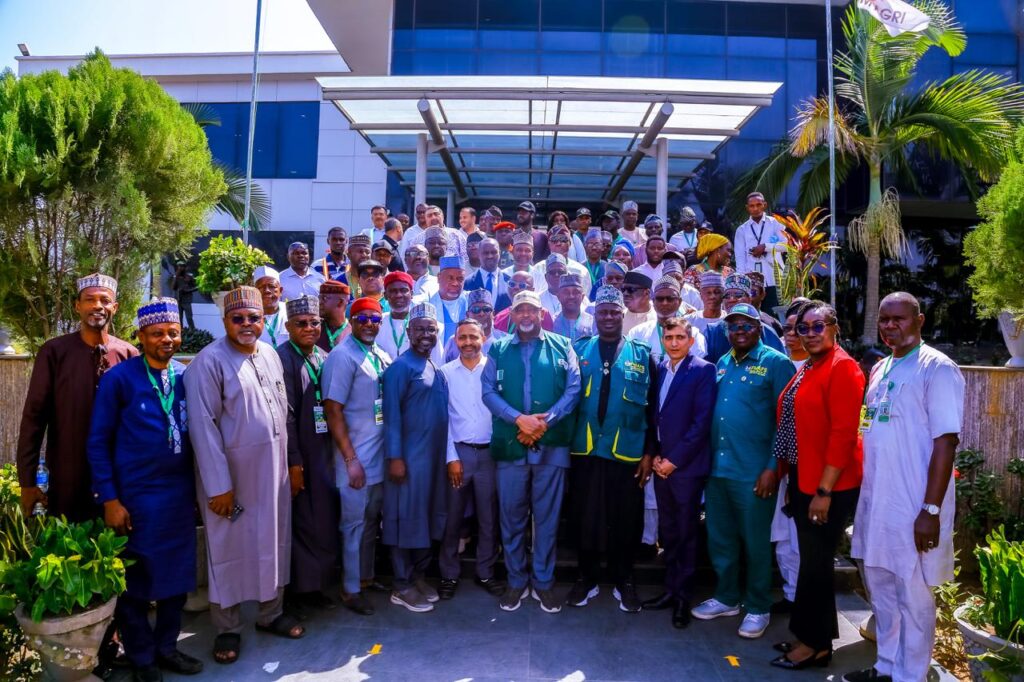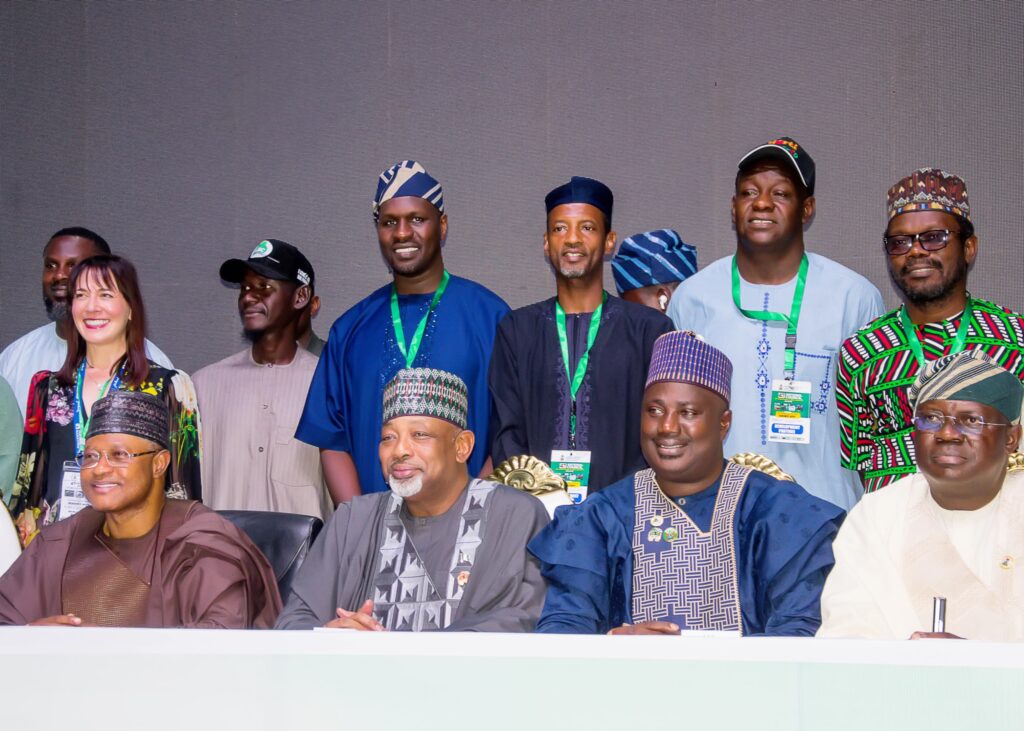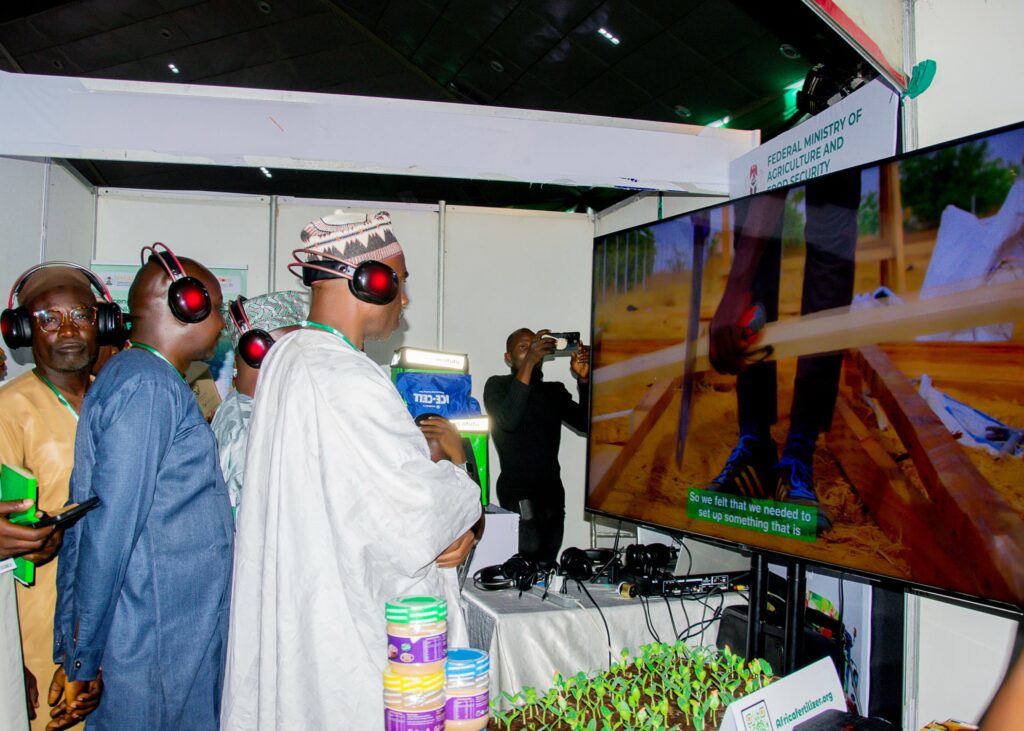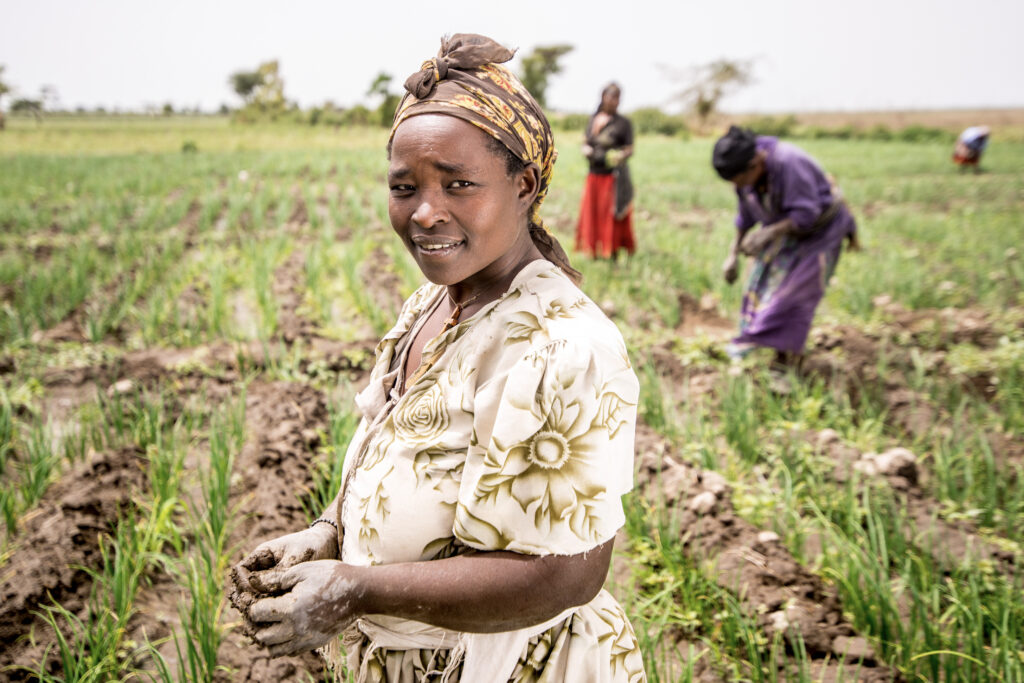
IFDC reaffirmed its leadership in advancing agricultural policy, sustainable innovation, and data-driven decision-making during the 47th National Council on Agriculture and Food Security (NCAFS), held November 3-7 at the Yar’Adua Conference Center, Kaduna State, Nigeria.
Organized by the Federal Ministry of Agriculture and Food Security (FMAFS), the Council serves as Nigeria’s foremost platform for setting policies and fostering collaboration among government, development partners, and private sector stakeholders.
“We are demonstrating how reliable data, innovative technologies, and strong collaboration with the private sector can accelerate Nigeria’s journey toward sustainable food and nutrition security.”
Salasi Mohammed Idris, IFDC Nigeria Country Representative and HortiNigeria Program Director

At this year’s meeting, IFDC participated through three flagship programs – AfricaFertilizer, HortiNigeria, and Soil Values – while making a landmark policy presentation to strengthen Nigeria’s fertilizer sector through evidence-based data systems.
IFDC Senior Fertilizer Market Specialist Samuel Ali presented a memorandum entitled “Strengthening Fertilizer Market Intelligence and Policy Decisions through the Nigeria Fertilizer Statistics, 2025 Edition.”
The memo, developed by AfricaFertilizer, called for an Annual Fertilizer Data Validation and Dissemination Mechanism under FMAFS, in collaboration with IFDC and the Fertilizer Technical Working Group.
The presentation highlighted key findings from the Nigeria Fertilizer Statistics Overview (2020-2024), validated in September 2025.
According to the report, urea production increased by 14% in 2024, reaching 4.18 million metric tons (mt), while fertilizer imports rose by 33%, exports grew by 20%, and consumption reached 1.86 million mt – making Nigeria one of West Africa’s leading fertilizer markets.

Ali emphasized the importance of reliable data for effective policymaking: “Fertilizer data is not just about numbers; it’s about decisions. Institutionalizing an annual validation mechanism will ensure that Nigeria’s policies are guided by accurate information, helping government, private investors, and farmers make smarter, more sustainable choices.”
The Council was invited to adopt the memo as its official fertilizer reference document and to approve the establishment of an annual validation framework, ensuring transparency, harmonized trade records, and stronger interagency collaboration.
Delegates applauded these recommendations as a blueprint for strengthening Nigeria’s fertilizer policy environment and supporting evidence-based planning.

The Dutch-funded HortiNigeria program, implemented by IFDC with partners East-West Seed Knowledge Transfer Foundation (EWS-KT), Wageningen University & Research (WUR), and KIT Institute, was also featured prominently at NCAFS.
HortiNigeria shared its progress in expanding access to finance, promoting eco-efficient technologies, and strengthening post-harvest systems. A major policy highlight was the increase in the Credit Risk Guarantee (CRG) for plastic crates from 30% to 50%, a reform initiated by IFDC and endorsed at the 2024 NCAFS.
HortiNigeria’s ongoing partnership with the Nigeria Incentive-Based Risk Sharing System for Agricultural Lending (NIRSAL) aims to achieve an even higher CRG of 75%, expanding private sector investment in post-harvest infrastructure and circular economy adoption.
At IFDC’s exhibition booth, HortiNigeria also shared sustainable innovations, including plastic crates that reduce waste and improve produce handling, as well as seedling trays and affordable alternatives, such as egg shells and tissue holders.
Business Champions and agripreneurs such as Ecotutu and Simkay Foods Ltd., who are driving youth inclusion and innovation in Nigeria’s horticulture industry, were also represented at the booth. Both agribusinesses participated in the program at invitation of HortiNigeria, showcasing their products and networking with stakeholders present.
Among the booth’s visitors was FMAFS Permanent Secretary Dr. Marcus Olaniyi Ogunbiyi, who connected with the HortiNigeria team and explored communication materials demonstrating IFDC’s impact across Nigeria.
Partners from Ecotutu spoke with Dr. Ogunbiyi, sharing their experience in improving fresh produce preservation and logistics, as well as promoting youth-led entrepreneurship in agriculture value chains.
HortiNigeria also presented its documentary “HortiHeroes” and other visuals, which gave stakeholders in-depth insight into the program’s impact through success stories from farmers, entrepreneurs, and partners across Nigeria.
Throughout the exhibition, over 400 visitors and government officials interacted with videos and other materials, engaging directly with the stories of transformation and innovation within the horticulture value chain.
The Soil Values program was also featured at the exhibition booth, where team members distributed communication materials highlighting soil health management and balanced fertilization to visitors. Discussions with participants were held at the booth, highlighting the importance of healthy soils as the foundation for resilient food systems and inclusive agricultural growth.
Reflecting on IFDC’s participation in NCAFS this year, IFDC Nigeria Country Representative and HortiNigeria Program Director Salasi Mohammed Idris emphasized the organization’s commitment to agricultural transformation: “Our engagement at the National Council highlights IFDC’s partnership with the Federal Ministry of Agriculture and Food Security. We are demonstrating how reliable data, innovative technologies, and strong collaboration with the private sector can accelerate Nigeria’s journey toward sustainable food and nutrition security.”
Idris added that IFDC’s integrated strategy across fertilizer systems, horticulture, soil health, and dairy development “continues to bridge research with impact—improving livelihoods while safeguarding the environment.”
Through its multi-program participation at NCAFS 2025, IFDC demonstrated its comprehensive approach to agricultural development, linking fertilizer efficiency, horticulture, and soil management. Together, AfricaFertilizer, HortiNigeria, and Soil Values contribute to Nigeria’s broader vision of sustainable food security, inclusive growth, and environmental stewardship.





